2023-2024 CTL Fellows
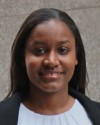
Arianne Bazilio, Assistant Professor of Environmental Science and Chemistry
“Incorporating Environmental Justice Aspects in an Environmental Chemistry Class”
Access to clean water is essential for life. The number of emerging anthropogenic contaminants in aquatic systems has drastically increased in the last decade as the number of pharmaceuticals and chemicals used by the population has increased, while the number of analytical technologies used to measure compounds at trace levels in the environment have increased. Ageing infrastructure and climate change have also negatively impacted water quality. Research shows that race and income play an important role in access to clean water, exposure to environmental pollution, and negative climate change impacts. Environmental chemistry examines chemistry concepts applied to select environmental systems, as well as human and environmental toxicology. As a CTL Fellow I will explore ways to best incorporate questions of equity and environmental justice in addition to the science.
 Doyle Calhoun, Assistant Professor of Language and Culture Studies
Doyle Calhoun, Assistant Professor of Language and Culture Studies
“From Hartford to Dakar: Developing a Virtual Transatlantic Language Exchange”
My project proposes a transatlantic virtual language exchange between students in Francophone Studies at Trinity College and francophone students in English (Études anglophones) at the Université Cheikh Anta Diop (UCAD) in Dakar, Senegal. Through synchronous and asynchronous interactions and assignments, students from Trinity and UCAD will exchange French and English-language materials, thereby gaining greater access to the respective target languages (French, English) and building meaningful connections with members of the target culture (USA, Senegal). This project emphasizes cross-cultural contact and communication as means of developing language proficiency and intercultural competence.
 Brian Chin, Assistant Professor of Psychology
Brian Chin, Assistant Professor of Psychology
“Establishing Core Learning Objectives for Research Design and Analysis”
PSYC-221-01 (Research Design and Analysis) is a foundation course in Trinity’s psychology curriculum that is completed by every major. This course involves the intensive study of the research methods involved in studying human behavior, cognition, and affect. PSYC-221 is offered every semester with the instructor rotating annually. The primary objective of my project is to develop a set of core learning objectives for PSYC-221-01 to standardize student learning outcomes across instructors. Example learning objectives that will be developed include (a) describing a dataset, (b) operationalizing a psychological variable such as fear, attention, or social belonging, (c) translating a research question into a testable hypothesis, and (d) interpreting the results of statistical tests. I will also pursue the secondary objective of more closely aligning the content of the PSYC-221 lecture with the course’s laboratory component.
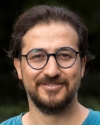 Hasan Cömert, Associate Professor of Economics
Hasan Cömert, Associate Professor of Economics
“Writing and Debating with a Public Audience in Mind”
The primary goal for my CTL fellowship is to introduce two innovations in my senior seminar course. First, I want my students to gain first-hand experience with writing succinct newspaper (business) articles for a more general audience. For this aim, I plan to divide students into three groups and, as one of the class requirements, ask each group to publish two Tripod, or local newspaper, articles during the semester. I hope integrating the publication assignment into this course will enable students to acquire their own voice in communicating how theories can be utilized to make sense of ongoing economic developments. Secondly, inspired by the “Model United Nations” and “The Fed Challenge, I want to introduce a structured debate module into my seminar. The goal is to help students to see how they can apply theories highlighted in the course to construct defensible debate positions and to enhance students’ debate skills. Ultimately, I expect to be able to create a team of Trinity Economics students to compete in the annual “Fed College Challenge” organized each year by the Federal Reserve Banks.
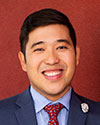 Nhat-Dang Do, Assistant Professor of Political Science
Nhat-Dang Do, Assistant Professor of Political Science
“Course Design: A Practical Approach to Understanding Race in American Politics”
Race continues to play an essential and meaningful role in American politics. Yet, it can be difficult to truly understand the centrality of race and ethnicity in our politics. I intend to develop a course examining historical and contemporary issues of racial and ethnic politics in the United States. The course will blend data literacy and community-engaged learning to teach students to use data to analyze the political outcomes, attitudes, and behavior of racial minorities. Students then use the theories and ideas in class to create practical advocacy plans for local racial minority interest groups in Hartford. The course is envisioned to equip students with skills and knowledge that they can then use to effect meaningful changes for our local racial and ethnic communities in Hartford. In doing so, students can concretely hold abstract theories and ideas on racial politics.
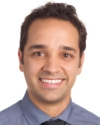
Dan Douglas, Director of Social Science Research and Lecturer in Sociology
“Integrating the Principles of ‘Building Thinking Classrooms in Mathematics’ into Statistics for the Social Sciences”
My goal with this CTL project is to implement ‘active learning’ in my Statistics for the Social Sciences course – SOCL 210. Active learning, which places an emphasis on students’ individual and collaborative work – has been shown to increase student learning and STEM course success (Freeman et al, 2014). The specific model of active learning I intend to implement is based on Peter Liljedahl’s (2021) Building Thinking Classrooms in Mathematics. In this work, Liljedahl describes K-12 mathematics classrooms as normative spaces where students do more mimicking and student role-playing than actual thinking. Based on classroom observations of short-duration classroom experiments conducted over fifteen years, Liljedahl describes fourteen teaching practices that can increase students’ thinking engagement in mathematics classrooms. These practices range from ‘how teachers respond to student questions’ to ‘how students are placed into collaborative groups.’
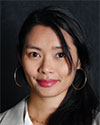 Susanne Kerekes, Assistant Professor of Religious Studies
Susanne Kerekes, Assistant Professor of Religious Studies
“De-Orientalizing Buddhism: Cataloguing Buddhist ‘Stuff’ and Acknowledging Spirits”
Who speaks for Buddhism? Why does American popular culture highlight Buddhist meditation instead of, for example, incense, prayer beads, or amulets? And why is it shocking when Buddhist clergy practice magic or interact with spirits? My project introduces the Buddhism of the 99% and aims to make visible mainstream Asian Buddhist practices that relate to “spirits and stuff.” This allows us to reevaluate the discipline’s colonial and orientalist legacies. My new course, “Buddhist Materiality: Spirits and ‘Stuff’ (RELG 321),” entails collaboration with the Watkinson Library’s Rare Books and Special Collections to catalogue a private collection of Thai Buddhist amulets over the longue-durée. During this CTL Fellow year, I plan to devise a new kind of final assignment – one that empowers students to creatively incorporate theory (orientalism, material religion, affect theory) with praxis (research, close-looking, archival training). I call this approach theory-experiential pedagogy. Through such an assignment, students will pursue research interests and cultivate skillsets (e.g., interviewing, web design, audio/visual editing) that speaks to them. While my CTL project focuses on this inaugural class, the outcome also benefits future iterations of this theory-experiential course. The long-term goal is to have the collection catalogued and stored at the Watkinson Library, and displayed in a campus exhibition that will be designed and curated by students of a future cohort. The course celebrates creativity, peer collaboration, accumulative research, and the process of learning.
 Mareike Koertner, Assistant Professor of Religious Studies
Mareike Koertner, Assistant Professor of Religious Studies
Teaching Environmental Justice in Religion
“Religion and Environmental Justice” is a new course that explores religious responses to the various environmental crises that confront humanity today, with a particular emphasis on environmental inequities as these crises disproportionally affect societies of the Global South as well as economically disadvantages population groups in the industrialized Global North.
My goal is to construct the syllabus around readings that represent the voices of scholars and activists from the traditions and cultures we examine, including Catholicism, Judaism, Islam, Buddhism, Hinduism, Taoism, and indigenous traditions in Africa and the Americas. In addition to designing a course that aims at offering diverse religious perspectives on environmental justice, I will work with the other CTL Fellows to identify ways to create a broadly inclusive classroom environment that integrates the experiences and skills of students from various disciplinary backgrounds as well as providing a safe space for students from various religious, racial, ethnic, and national backgrounds to integrate their own experiences with aspirations for environmental justice.
 Blase Provitola, Assistant Professor of Language and Culture Studies & Women, Gender and Sexuality
Blase Provitola, Assistant Professor of Language and Culture Studies & Women, Gender and Sexuality
“Experimenting with Specifications Grading”
Inspired by recent discussions about “ungrading” practices, Blase Provitola will experiment with adopting and adapting elements of specifications grading in their gender studies and French courses. They will focus on updating syllabi, determining appropriate criteria for evaluating participation, and designing assignments with the overall aim of reducing student stress, raising overall quality of student work, and saving time on grading.
 Yipeng Shen, Associate Professor of Language and Culture Studies & International Studies
Yipeng Shen, Associate Professor of Language and Culture Studies & International Studies
“How to Teach ‘Anti- American’ Culture in the Classroom”
My project is to explore better pedagogical practices to teach central issues of 20th-century Chinese literature and culture such as revolution and socialism. Using a social justice pedagogical and content knowledge (SJPACK; Butler and Boyd, 2019) framework, I aim to discover how the teaching of humanities contents frequently understood as “Anti-American” can contribute to better understandings and conversations of social justice in the context of the United States of America.
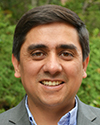 Raul Zelada-Aprili, Assistant Professor of Economics
Raul Zelada-Aprili, Assistant Professor of Economics
“Contextualizing Economic Models with Real-world Examples”
Economics 101 introduces students to the foundations of Economics as a social science. Many economic models used in teaching economic theory are highly abstract and a great deal of simplification is employed to make them tractable. Students may get lost in the intricacies of these abstract models and lose sight of the goal behind the exercise: understanding the functioning and the policy options of a real-world economy. The goal of my CTL project is to identify and collect an array of short articles from newspapers, specialized magazines, or excerpts from academic papers that provide real-world examples of different topics discussed in Econ 101 and create short reading assignments about the articles. These readings and assignments may enable students to connect the abstract concepts discussed in class with actual events taking place in the real world.
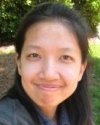 Shunyuan Zhang, Assistant Professor of International Studies & Women, Gender and Sexuality
Shunyuan Zhang, Assistant Professor of International Studies & Women, Gender and Sexuality
“Teaching Beyond Binaries”
The CTL fellowship project I am proposing, “Teaching beyond the Binary,” aims to incorporate the analytic and political approach emerging in my teaching and research into the design of a new course tentatively titled “Queer Asia”. At Trinity, I have been teaching courses that discuss gender and sexuality from transnational perspectives. I have noticed two recurring patterns of response from students, one of which holds Western understanding and practices as the norm and standard against which to measure those in the rest of the world; the other recognizes the problematic of the Western norms and embraces a cultural relativist view that respects differences through ontologizing them, that is, through de-historicizing differences and sidestepping the global geopolitical power structure that has been producing differences. The goal of my CTL fellowship is to develop pedagogical interventions that problematize the binary between the West and the rest, and a series of corollary binaries born out of that colonial dichotomy; and that introduce students to understanding and practices of gender and sexual practices in Asian areas and countries without making them just another set of exotic case studies to view and fetishize from a distance.
